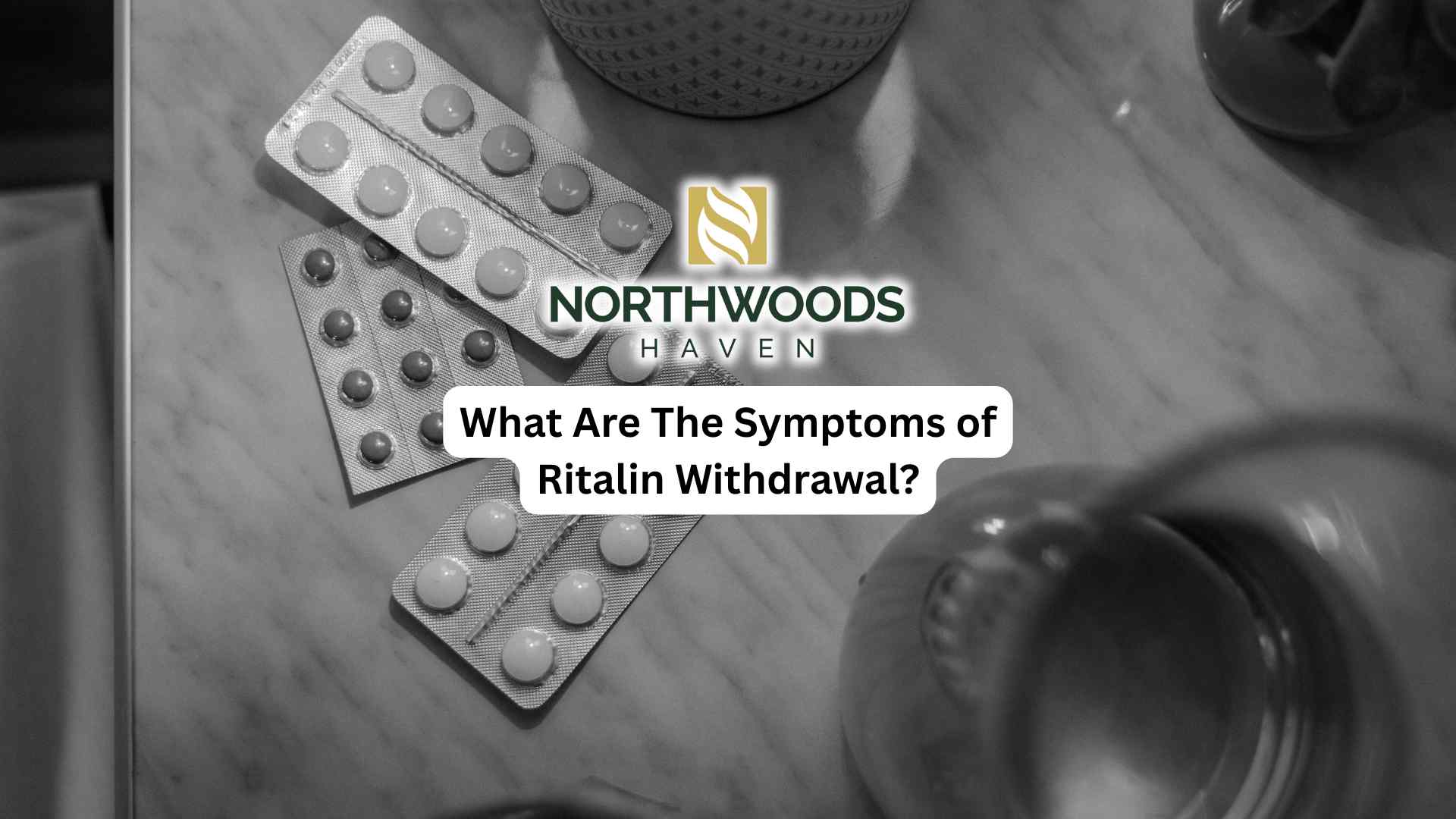Ritalin, known generically as methylphenidate, is a central nervous system stimulant primarily prescribed to treat attention-deficit hyperactivity disorder (ADHD) and narcolepsy. While effective for these medical purposes, Ritalin has a high potential for abuse because its stimulant effects can mimic those of drugs like cocaine and methamphetamine when misused.
In this article, you will learn what happens when you stop using Ativan and when you should opt for professional guidance.
What is Ritalin Withdrawal?
Ritalin withdrawal refers to the physical and psychological symptoms that occur when a person who has been using the drug regularly—especially at high doses or for extended periods—abruptly stops or significantly reduces their intake.
Over time, dependence develops—especially with long-term or high-dose use—causing your nervous system to rely on the drug’s presence for balance and normal function. When you quit or sharply reduce your dose, your body has to readjust, resulting in uncomfortable withdrawal symptoms.
Withdrawal occurs because the body and brain have become accustomed to the presence of the drug, and its sudden absence disrupts normal neurochemical functioning. This can lead to a range of uncomfortable and sometimes severe symptoms that vary in intensity and duration depending on individual factors such as dosage, length of use, and overall health.
Misuse of this prescription drug can lead to addiction. The physical signs of Ritalin abuse include weight loss due to appetite suppression, insomnia, increased heart rate, and elevated blood pressure. Long-term misuse negatively affects social, academic, and professional life, often causing isolation and impaired functioning.
The Ritalin addiction treatment in Minneapolis that we provide at Northwoods Haven Recovery offers personalized outpatient care that combines medical guidance, behavioral therapies, and relapse prevention strategies to guide you as you transition to a drug-free life while addressing the underlying causes of addiction.
Symptoms of Ritalin Withdrawal
Physical symptoms of Ritalin withdrawal include fatigue, excessive sleepiness or insomnia, increased appetite, weight changes, chills, dehydration, tremors, and dulled senses. Some individuals may also experience nausea and irregular heartbeat.
Psychological and behavioral symptoms are often more pronounced and include anxiety, irritability, mood swings, depression (sometimes severe with suicidal thoughts), intense drug cravings, vivid drug-related dreams, loss of interest in pleasurable activities, poor memory, and restlessness.
The combination of these symptoms can make withdrawal challenging and may contribute to relapse if not properly managed.
Timeline of Withdrawal Symptoms
As you stop taking Ritalin, withdrawal symptoms usually appear within the first 24 to 72 hours. Symptoms typically begin within this window after the last dose is administered. Early signs include anxiety, irritability, sleep disturbances, fatigue, and cravings. If you used very high doses, symptoms may appear as early as 24 hours post-cessation
During days three to seven of the withdrawal timeline, symptoms often intensify. This period marks the peak of withdrawal symptoms. You usually experience intensified mood swings, deepening depression, insomnia, nausea, exhaustion, and increased appetite. Cravings for Ritalin are powerful during this phase.
As the weeks progress, particularly from weeks two to three, symptoms generally start to subside physically, but psychological effects such as anxiety, depression, and cravings may persist. Sleep problems and mood fluctuations can continue, sometimes leading to secondary anxiety or depressive episodes.
In around 4 weeks and beyond, most acute symptoms diminish, but you may still experience lingering anxiety, depression, or cravings. Post-acute withdrawal symptoms (PAWS) can cause intermittent mild symptoms lasting for months in some cases.
For some, psychological symptoms—like depression or trouble concentrating—can last several weeks, though they tend to improve as your brain readjusts gradually.

Risks of Abrupt Discontinuation
Understanding the withdrawal timeline highlights why it is risky to stop Ritalin suddenly. Abrupt discontinuation can overwhelm your system, triggering severe withdrawal symptoms such as extreme fatigue, intense irritability, and powerful cravings.
Without gradual tapering, you are likely to face dramatic mood swings, anxiety, or even clinical depression, which may raise the risk of suicidal thoughts. Agitation and sleep disturbances also tend to worsen, making daily life significantly more challenging.
If you have heart issues, abrupt discontinuation could cause dangerous cardiovascular effects such as an increased heart rate or fluctuating blood pressure. Unlike a medically supervised taper, stopping on your own denies you the support needed to manage these symptoms safely.
Gradual tapering under professional guidance is recommended to minimize these risks and ensure safer withdrawal.
Coping Strategies and Treatment Options
Managing Ritalin withdrawal effectively often requires a combination of medical and psychological support:
- Medical detoxification: Supervised detoxification can help manage physical symptoms safely, provide hydration and nutrition, and monitor for complications. Medical professionals may also prescribe medications to alleviate specific symptoms like anxiety or insomnia.
- Behavioral therapies: Cognitive Behavioral Therapy (CBT), and group therapy can address psychological symptoms, help develop coping strategies, and reduce relapse risk.
- Lifestyle adjustments: Maintaining a healthy diet, engaging in regular exercise, practicing good sleep hygiene, and employing stress reduction techniques can all support recovery.
- Ongoing support: Long-term treatment plans, including Relapse Prevention Therapy and possibly medication-assisted treatment, can help manage post-acute withdrawal symptoms and sustain abstinence.
When to Seek Help
If you are experiencing withdrawal from Ritalin, it is crucial to seek professional help if any of the following occur:
- Severe depression or suicidal thoughts
- Intense, uncontrollable cravings leading to relapse risk
- Physical symptoms such as irregular heartbeat or severe dehydration
- Inability to manage withdrawal symptoms alone
- Prolonged psychological symptoms lasting beyond a few weeks
Early intervention by healthcare providers or addiction specialists can improve outcomes and provide necessary medical and emotional support during withdrawal and recovery.
Final Thoughts from Northwoods Haven Recovery
It is essential not to go through Ritalin withdrawal alone—professional help can make a big difference in your safety and comfort.
At Northwoods Haven Recovery, our outpatient treatment program offers a compassionate, flexible, and evidence-based approach to overcoming addiction to this stimulant. Our program is designed to support individuals who want to maintain daily responsibilities while receiving personalized care through individual therapy, group counseling, and medication management. We equip clients with tools for sustainable recovery and long-term wellness.



